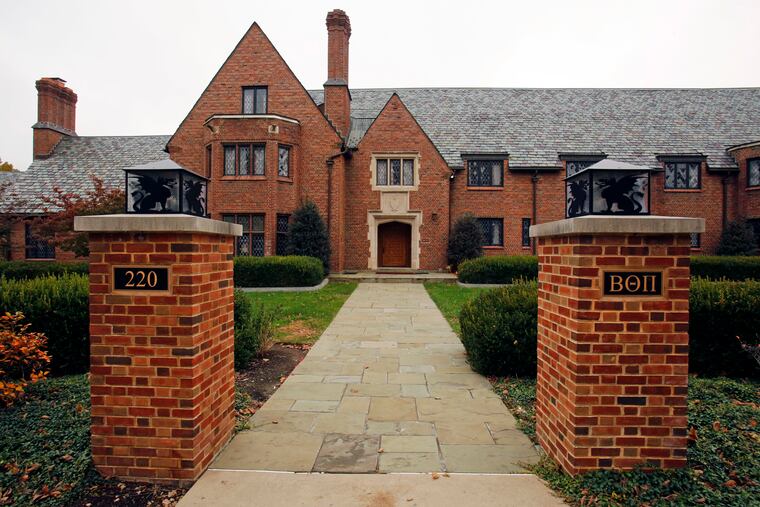Penn State soon to unveil national report card on Greek life; 55 colleges have provided data
The first national score card on Greek lilfe will include data on GPAs of members, size of chapters, and philanthropic hours served, but also violations such as hazing, sexual misconduct, and alcohol consumption.

STATE COLLEGE, Pa. — Pennsylvania State University said it will soon release the first national scorecard on fraternities and sororities, highlighting the good, such as public service hours, and the bad, such as hazing and sexual misconduct violations.
But many schools will be absent from the list.
The university has reached out to nearly 400 colleges and universities and 55 have provided data — although three asked not to be identified in the scorecard, said Steve Veldkamp, special assistant to the vice president for student affairs and director of the Piazza Center, which is overseeing the effort. The center was started in honor of Tim Piazza, the sophomore fraternity pledge who died in 2017 following an alcohol-saturated party where hazing occurred.
“We had a lot of folks that were interested in participating, but not many that wanted to share the data,” Veldkamp told members of Penn State’s board of trustees this week. “We’ve had to continue to push this important topic … at campuses across the country.”
The scorecard will include data on GPAs of members, size of chapters, and philanthropic hours served, but also violations such as hazing, sexual misconduct, and alcohol consumption, he said.
“The scorecard gives institutions the information they need to benchmark their local chapters against the national landscape as well as have meaningful and constructive dialogues with national organizations,” the Piazza Center says on its website.
Other local colleges that are participating include: Lehigh University, Stockton University, the College of New Jersey, the University of Delaware, and Susquehanna University. Only one Ivy League university, Cornell, is involved. Among other schools are Ball State, Duke, Ohio University, Oregon State, Purdue, Texas A&M, and Pittsburgh.
Penn State president Eric Barron said he believes more colleges will participate after they see the format. The center plans to release the scorecard annually.
“Who knows,” he said, “maybe there will be a rumor out there that if you’re not providing your data, you must be really bad.”
Over 50 schools, Barron said, is a good start.
» READ MORE: Inside Swarthmore’s decision to close frats: The behavior of students who demanded it was an issue, too
The national scorecard is one of many initiatives the university has launched in the aftermath of Piazza’s death. The center, officially called the Timothy J. Piazza Center for Fraternity and Sorority Research and Reform, is another, which was started in January.
Penn State officials earlier this fall said they were seeing promising signs that some of the steps taken, including more intense monitoring of fraternity and sorority parties, were yielding positive results. Alcohol-related emergency room visits by students fell from 691 in spring 2018 to 570 last spring, said Damon Sims, vice president of student affairs. Crimes occurring at fraternities fell by nearly a third during the same period, he said, and noise violations and alcohol crimes in fraternity neighborhoods were down.
But around the country, deaths linked to fraternities continue to occur, including several this month at Washington State, Arizona State, and San Diego.
» READ MORE: National fraternities, parents who lost children team up against hazing
Last month, Penn State placed the Chi Phi fraternity on interim suspension after a 17-year-old male visiting from Erie died at an off-campus house allegedly occupied by fraternity members. The teen was found unresponsive at the house, which was not the official fraternity residence, the university said. University officials said Friday there was no update.
Veldkamp and Barron said schools declining to participate in the report card had a variety of reasons. Some were undergoing leadership transition. Some didn’t think they had the authority to release the data. Others were concerned their institution would be embarrassed.
Over time, Veldkamp said he expects the report card to become a go-to resource for parents looking at the organizations their son or daughter want to join.
“It’s going to be a game-changer,” he said.